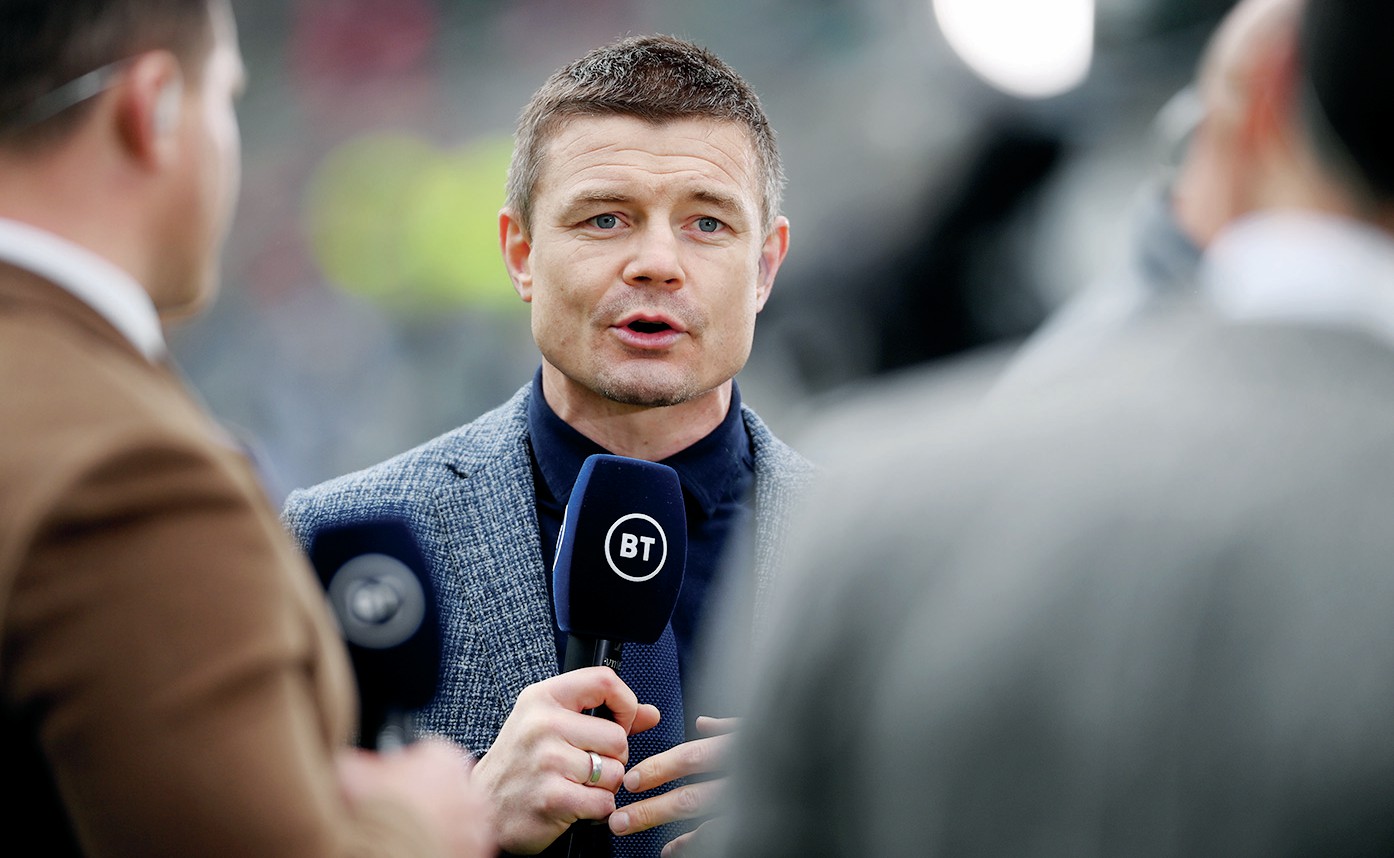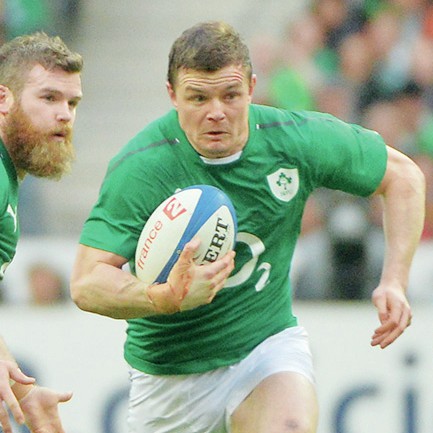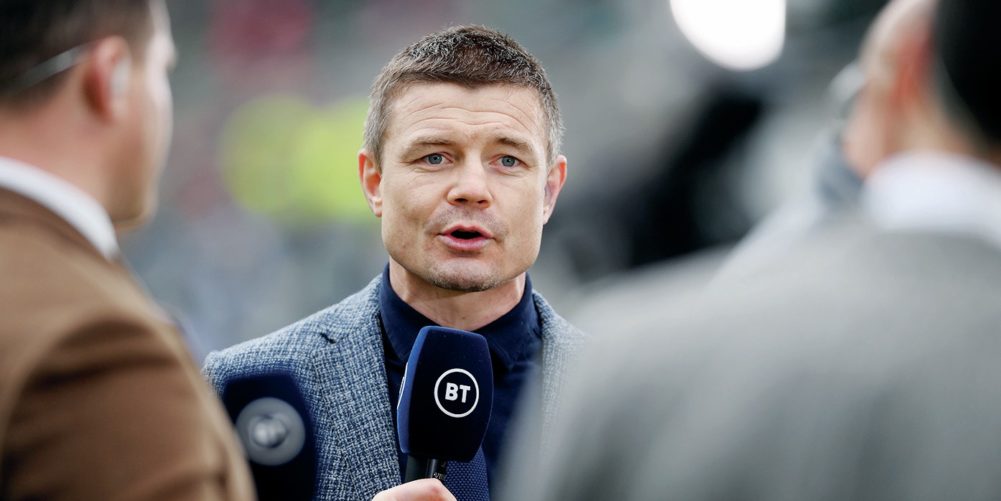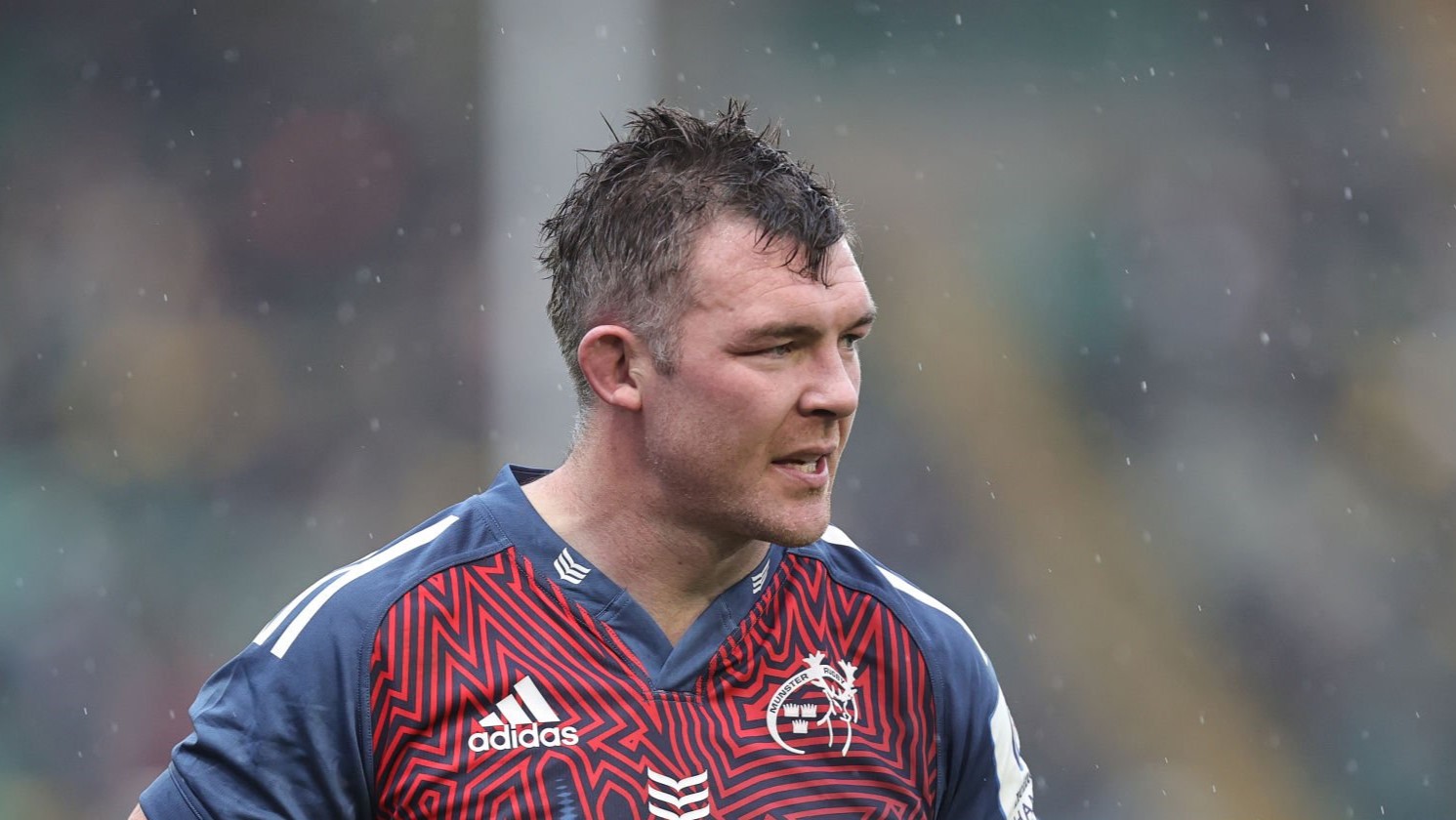There is a moment in Brian O'Driscoll's documentary on life after professional sport when Michael Cheika sums up what players and athletes lose when their careers end.
The Argentina and former Australia coach, who was in charge of Leinster when, with O'Driscoll in the midfield, the province made its breakthrough in Europe by beating Leicester in the 2009 final in Edinburgh, reflected on the impact on mental health can have after retirement.
“You are addicted to adrenalin,” he said. “You need to be able to handle getting away from it but that competitive edge is hard to replace. It is a huge void to fill. You need to work out who you are and what you are going to be.”
O'Driscoll, the former Ireland and Lions captain whose senior career lasted 15 years, assembled a strong cast list for his documentary, After the Roar, which was co-produced by BT and his own production company, 3 Rock. The England football manager Gareth Southgate, England batsman Jonny Bairstow, whose father, David, committed suicide after the end of his cricket career, jockey AP McCoy and Cheika are among those interviewed.
“It was about getting different perspectives about what retirement looks like,” said O'Driscoll. “You had the extreme career high of AP, Gareth Southgate's success in the second part of his football career as a manger and (boxer) Anthony Ogogo not getting to achieve his childhood dream before being forced to retire.
“I had a softer landing than others who were spat out at the end of their careers and did not know what their next avenue would be. You go through massively different emotions and the overriding need with mental health is to talk to someone, whether family, friends or a professional. There is no stigma to showing vulnerability and weakness.”
Ogogo tells O'Driscoll: “Boxing is what I did, not who I am.” Yet many remain linked to their sport long after they retire. “Most people identify me as an ex-rugby player,” said O'Driscoll. “The chances of that changing in the next 40 years are not high.

“There are some ex-pros in Australia who train with each other. When you leave something you love like rugby and there is no endorphin release, it is like a double negative. You are paid to stay fit and when that goes, you have to find a way of getting the feelgood factor back. It can come through exercise and talking issues though.
“At the end of your career, your mind still wants to do it but your body can't. The huge highs of doing something you would have done for nothing go overnight and you have to find something else to do, both for your mental well-being and to give you the standard of loving you have had.
“You need a reason to get up in the morning and that means building structure into your day. The last thing you want to be doing is lounging on a sofa watching TV and all of a sudden it is four in the afternoon. When you retire you have to keep the mind sharp and not become sedentary, chase yourself away from the comfort zone and find a purpose in what you do.”
O'Driscoll climbed rugby's peak, destined to do so from the moment he scored a hat-trick of tries against France in 2000 to help Ireland secure their first victory there in 28 years. His only blemishes were in the World Cup, where Ireland have still to progress beyond the last eight, and against New Zealand when he came close to victory but never savoured it.
Ireland rectified that in 2016, two years after his retirement, and this summer not only defeated the All Blacks in New Zealand for the first time but came back from a Test down to win the series and become confirmed as one of the favourites to win next year's World Cup in France.
“I find it easier to watch Ireland now,” said O'Driscoll. “There has been enough separation. The first couple of victories over the All Blacks were bittersweet for me. I was envious and wished I had been part of a team that had got it done having come close a few times. When Ireland won the series, I could enjoy it and applaud.”
O'Driscoll is a pundit on BT, one of a number who have gone from playing to analysing or commentating rather than, like his Ireland and Lions colleague Paul O'Connell, venturing into coaching. “Being involved now is different to playing at the highest level,” he said. “I enjoy working in television, but it does not come close when it comes to comparing highs.”
The issue of the mental health of professional athletes grew during the Covid lockdowns and the financial squeeze on many sports since, highlighted by the plight facing Worcester who face a winding up order by HMRC over an unpaid £6m tax bill. Players and staff were paid late in August and the owners are looking to sell the club rather than go into administration which would mean relegation.
“Covid had me living a lot more in the present,” said O'Driscoll. “I think it served as a leveller for current players who were able to get off the gerbil wheel, slow down and reflect. It was positive for some but terrible for others. The time allowed me to look back, reflect on the disappointment of my career finishing and live in the now.
“There are concerns about where the game is with former players taking legal action having been diagnosed with early onset dementia and financial problems. It has been a harrowing time for all those at Worcester, at one point not knowing whether they would still have a job. It shows how vitally important it is to have an outlet where you can pour out your concerns.”
O'Driscoll may have been an outside-centre with a reputation for flair, but he also relished the physical side of a game which has put increasing demands on the body of players. Does he fear the consequences that some of his contemporaries are having to face up to?

“What has happened is incredibly unfortunate and desperately sad,” he said. “Fear can only perpetuate if you allow yourself to dwell on it. All you can do is live day to day and keep your mind and body working. You will have head collisions and concussions in rugby but the onus on those running the game is to try and reduce the number.”
O'Driscoll's last World Cup was in New Zealand in 2011. Ireland threw the tournament on its head by defeating Australia in the group stage to virtually ensure there would be a north-south final, but they lost to Wales in the quarterfinal and got no further in the next two tournaments. Will 2023 finally be their year?
“We all dream,” he said. “We can look forward to what might come in a year: there is no point in setting low standards. At the moment we can enjoy the upside while trying to keep ourselves in check. Winning in New Zealand was something no Ireland team had done before so they are clearly in very good shape, but the World Cup is still a year away. A lot can happen between now and then.”
After The Roar, the latest in the BT Sport Films series, will premiere on Friday September 16 at 10pm on BT Sport 1.



























